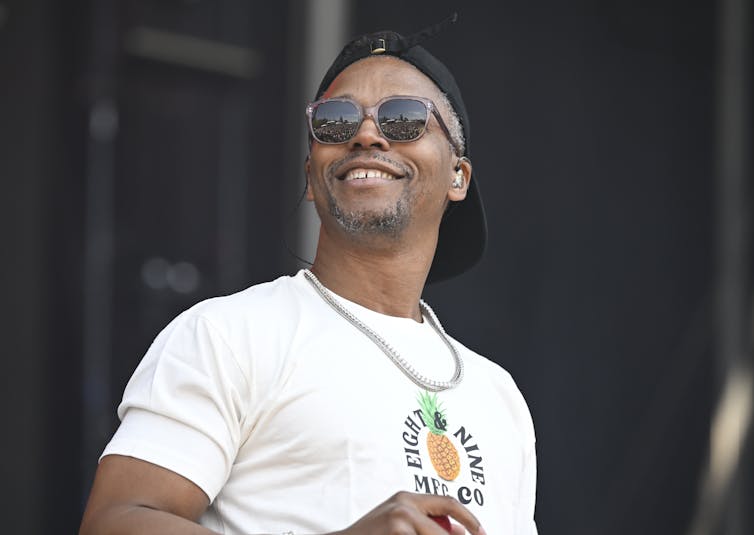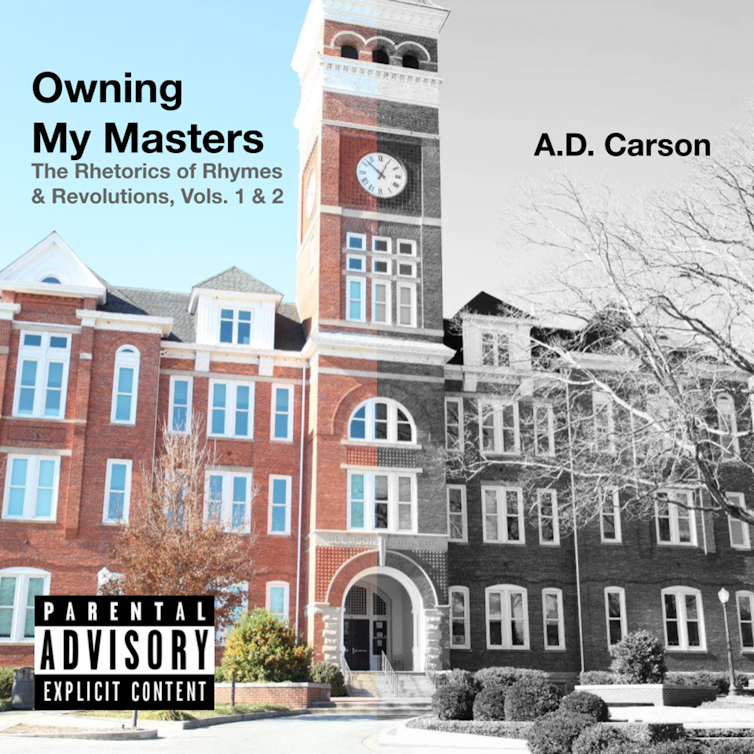Describing my 2017 appointment as a school member, the College of Virginia dubbed me the college’s “first” hip-hop professor. Even when the job title and the historic nature of the appointment might need merited it, the phrase was deceptive.
Kyra Gaunt, a Black lady who’s a foundational determine within the research of hip-hop, labored as a professor of ethnomusicology on the College of Virginia from 1996 to 2002. Her e-book “The Video games Black Ladies Play,” which focuses on Black music practices, was revealed in 2006. I cited her in my work and within the interview I gave earlier than accepting the job.
Additionally cited in my doctoral work, offered in my interview with the College of Virginia, was scholar Joe Schloss, who labored on the college from 2000-2001. In 2009, he wrote “Basis: B-boys, B-girls, and Hip-Hop Tradition in New York.” And in 2014 he wrote “Making Beats: The Artwork of Pattern-Based mostly Hip-Hop.”
After pushback from readers on-line, UVA At the moment amended its authentic headline documenting my appointment and added Gaunt’s contributions to the article.
As a rapper and scholar, I’ve skilled and seen deceptive hip-hop tales that spotlight an impulse to inaccurately doc the style’s historical past and current. I raised this difficulty lately in a TikTok “workplace hours” video – a part of a collection wherein I reply to viewers questions from the vantage of hip-hop artwork and analysis.
Deceptive hip-hop tales
After Johns Hopkins College introduced that Lupe Fiasco had been employed to show rap there in fall 2025, some on-line platforms, together with The Root, incorrectly reported on his project.
They described his upcoming job as the primary occasion of a rapper ever employed as a professor at a college.
That is clearly incorrect. I’m a rapper who since 2017 has labored as a professor of hip-hop whereas releasing music, which was a part of the premise for my incomes tenure in 2023. In addition to this, I’m sure there have been rappers with college educating jobs earlier than me.
The development of misrepresenting hip-hop historical past isn’t distinctive to communications from locations equivalent to Johns Hopkins College or the College of Virginia.
In 2024, the writer of musician Ahmir “Questlove” Thompson’s “Hip-Hop is Historical past” described it as “the e-book solely Questlove might write: a singular, definitive historical past” of hip-hop.
Questlove’s e-book just isn’t, because the writer claims, a definitive historical past. It would extra precisely be described as Questlove’s tackle hip-hop historical past, or a memoir. With out this crucial distinction, unknowing readers would possibly misread the writer’s claims.
Questlove writes about lastly coming to understand Southern rap within the 2000s. However Southern rap historical past predates Questlove’s appreciation by many years. It doesn’t start when somebody like him lastly acknowledges its significance.
Equally, hip-hop doesn’t start when it’s lastly acknowledged by an unique establishment or when somebody will get a level for it.

Making hip-hop historical past
I revealed these considerations as tutorial questions in 2017 in an album referred to as “Proudly owning My Masters: The Rhetorics of Rhymes & Revolutions.” The undertaking served as my doctoral dissertation.
“Proudly owning My Masters (Mastered)” is the subsequent part of the dissertation album undertaking. Revealed in 2024, it incorporates new audio, video, pictures and historic context. It’s revealed with College of Michigan Press by the identical technique of an instructional e-book.

“Proudly owning My Masters (Mastered)” demonstrates how hip-hop resists the methods American historical past usually excludes Black resistance, Black achievement, Black storytelling and, in the end, Black individuals.
However the exclusion that my work highlights is muted when the seeming novelty of my job appointment or my dissertation album are the main focus. After I’m requested if I’m the primary particular person to earn a Ph.D. for making a rap album, I attempt to reply extra expansively to keep away from deceptive anybody, or ignoring what may be extra informative.
It’s additionally essential to grasp the boundaries that may have made a undertaking like mine unattainable earlier than 2017. These embody technological boundaries that made recording and releasing music prohibitively costly. And, extra particular to hip-hop, it includes a distrust primarily based on racist historical past that prevented college students from even proposing such a undertaking.
No such “first” occurs with out the unsung work of others creating the circumstances to make it potential.
Studying from hip-hop
Hip-hop’s documentation mustn’t repeat the identical flaws of the recording of American historical past, which may omit essential individuals and occasions, and which may misrepresent the legacies of racism and systemic violence.
Undeniably, I consider essential hip-hop texts, albums and moments ought to be studied and documented with tutorial rigor. However this could not solely concentrate on “firsts,” document gross sales or prestigious awards.
Such tales fail to precisely illustrate that hip-hop is as a lot about how individuals stay day after day as it’s about how establishments use it to bolster credibility or how firms generate income off it.
Vital features of hip-hop’s various tradition are excluded when the odd is missed.
Creating hip-hop is one among the many some ways Black individuals have persevered within the U.S.
Universities and different exclusionary establishments helped maintain – and, in sure methods, proceed to learn from – hellish circumstances like these created by slavery.
Hip-hop is, partially, a response to this historical past.
At its greatest, hip-hop paperwork American life extra reliably than American historical past.
Some tutorial publishers have began to embrace this actuality.
My 2020 album “i used to like to dream” could also be noteworthy because the first rap album to be peer-reviewed and revealed with an instructional press. Extra importantly, its contents are about historic erasure of Black individuals and Black historical past in my hometown, Decatur, Illinois.
Hip-hop’s recognition, its fixed revision and its accessibility make it a robust car for disrupting inaccurate, exclusionary and fabricated tales handed off as goal details.
The style has documented occasions such because the Tuskegee syphilis research – the 40-year experiment, performed with out knowledgeable consent, on Black males by the U.S. Public Well being Service to check the consequences of the illness when left untreated.
Hip-hop has additionally cataloged tragedies such because the 1921 Tulsa race bloodbath – a two-day assault by white mobs on their Black neighbors – and the 1995 Million Man March, a big gathering of Black males in Washington, D.C.
The media ecosystem wherein hip-hop has thrived can be steeped with the scapegoating of its artwork and artists. This scapegoating is weaponized by critics to devalue the tradition.
It appears unwise to me to belief establishments equivalent to universities and the media to find out what’s deemed culturally vital. Together with influencers and podcasters who profit from hip-hop, they will be taught useful classes from it.
Their potential to find out what’s deemed culturally vital is particularly problematic if their decisions are primarily in change for income or credibility. If hip-hop is considered as a cultural inheritance, then its worth – and what’s thought of traditionally essential – could also be higher arbitrated by individuals within the tradition, not outdoors forces.
A.D. Carson, Affiliate Professor of Hip-Hop, College of Virginia
This text is republished from The Dialog underneath a Artistic Commons license. Learn the authentic article.
SEE ALSO:
Important Roy Ayers Songs Sampled By Hip-Hop And R&B
Remembering Angie Stone & Her Pioneering Hip-Hop Roots
![]()